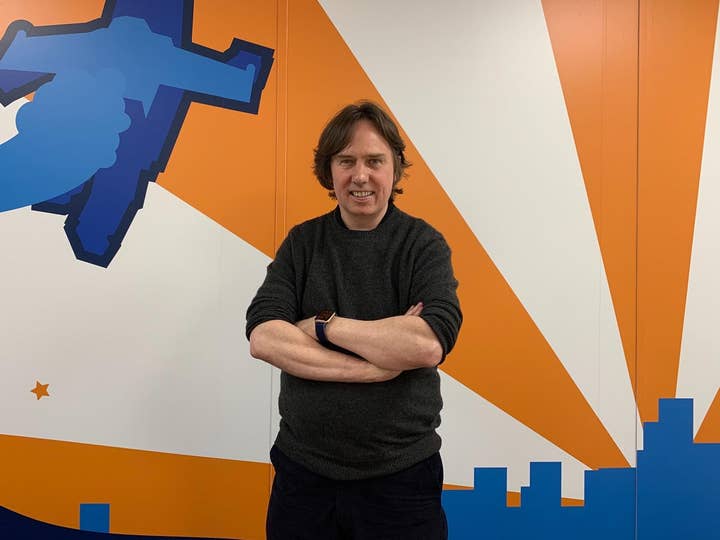Kwalee and the power of profit sharing
Pocketing the extra cash would have a “detrimental effect on the success of the company” says CEO David Darling
Hyper-casual developer and publisher Kwalee has handed out £1 million in bonuses through it's profit share scheme since October 2018.
Distributed between the studio's 73 team members, some staff have seen their annual salaries doubled as a result.
According to Kwalee CEO David Darling, the profit sharing scheme has helped improve motivation at the company, as staff see a material reward for the investment of their energy and creativity.
The scheme is part of Kwalee's ethos that "all employees should share in the success of the company," and is facilitated by the recently introduced Creative Wednesdays, which provide a platform for any and all staff to workshop game ideas.
While all employees are entitled to a profit share, staff members who see their game idea through to release will be rewarded with an increased share, without a cap.
As Darling tells GamesIndustry.biz, the new scheme has helped incentivise creativity within the company.
"The reasoning behind opting for a profit share model harks back to my days as a game developer," he says.
"I've been writing games since I was 13 years old, and when I was writing them for other publishers in the early days of my career, I was getting paid royalties for the successes, and became motivated as a developer to keep chasing that success; keep topping charts and in turn, keep getting the royalties."

Within the realm of hyper-casual games, which typically have shorter lifespans, the need for a constant stream of creative game ideas is essential.
Of course, plenty of game companies don't adopt a revenue sharing model and get along just fine, despite the constant need for new content. So why not just pocket the extra cash?
"Just pocketing the money would be the reverse of what we stand for here, and moreover, would have a detrimental effect on the success of the company," says Darling. "We are achieving success with our games due to having a highly motivated team. Not sharing the profits would change things significantly.
"Just pocketing the money would be the reverse of what we stand for here, and moreover, would have a detrimental effect on the success of the company"
"Beyond that, working in this way isn't causing the need for any business decisions to be made differently -- we're happy for the bonuses to be paid."
The decision to not include a cap is also a notable aspect of Kwalee's approach. But Darling says that people who work in development understand the need to adequately reward their staff.
"My experience in this area is that the whole idea of developers getting royalties for the games they work on, and especially games they come up with and play a real part in, is understood a lot better by those that have actually worked in that way before, and built their careers through game development," he says.
"I've found that those who don't have this experience of working on the development of a game don't particularly 'get it', and that's where expectations can differ in certain companies. The need for this sort of model might not be given the same sort of credit, and can quickly be 'shot down' or altered.
"If you've never been a developer working on a game that then turns into a great success, and seeing the monetary benefit of that and the motivation it brings, then you probably won't look at your team in the same way. Models like this validate creative fulfillment, and it's something my experience has helped me to appreciate."
"There's a need to appreciate the success this model can bring, and then maybe it would become more normal"
It is worth reiterating that this model reflects individual work and investment on the game. While all staff are entitled to a share, profit share entitlement is linked to involvement.
"There's a base amount that goes to everyone no matter the role, which is added to based on how closely the work of the individual has related to the success and profit of particular games," says Darling.
"This heavily plays into our weekly Creative Wednesdays, where the incentive is there to pitch an idea that gets made, and in turn, create an internal team that works together on making this idea become a reality. If this becomes a success, then those closest to the creation of the game will benefit more from the bonus scheme."
With Kwalee having already paid out £1 million in just over a year, the scheme is delivering on its premise and, according to Darling, benefiting the company as a whole. However, Darling is unsure whether schemes like this will become more common across the industry, especially with larger firms focused on shareholder returns.
"It's hard to see those corporations implementing this model, and it comes back round to not every company having that 'developer mindset' from the top down," he adds. "There's a need to appreciate the success this model can bring, and then maybe it would become more normal.
"We are also different with a faster moving hyper-casual market. Not every company can offer staff the chance on a weekly basis to pitch new ideas and actually see them through, so we are blessed in that sense.
"With big console games, it's much harder to implement something like this as the nature of the games are so different. With those things in mind, I think there's a long way to go, and quite a few hurdles until it becomes the norm."








